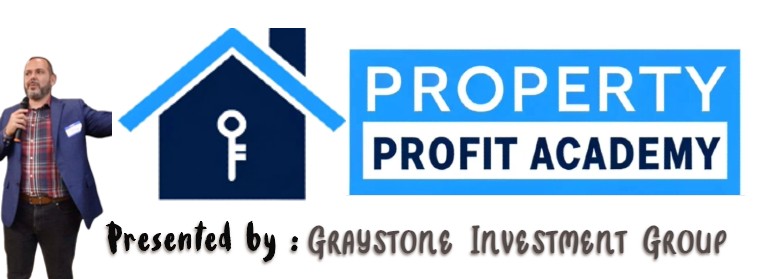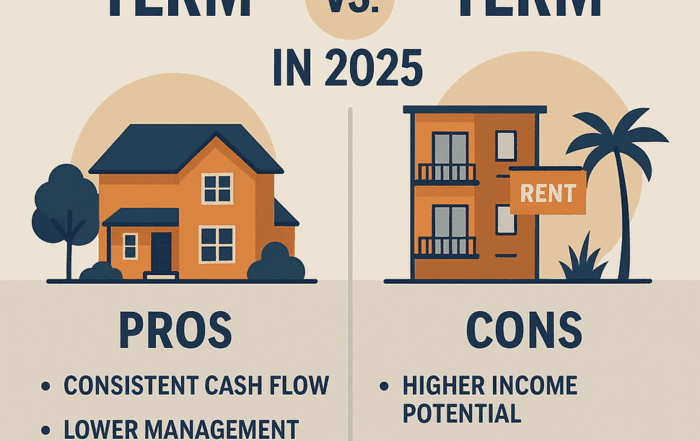
Breaking Down Real Estate Ownership: Which Type Fits Your Style?
Why This Type of Ownership Is Common Among Real Estate Investors
(Formerly: Breaking Down Real Estate Ownership: Which Type Fits Your Style?)
Real estate ownership isn’t one-size-fits-all. Depending on your goals, finances, and whether you’re flying solo or teaming up, there’s a setup that fits you just right. In this article, we’ll explore the types of ownership that are most common among real estate investors, and why so many go with certain structures over others.
Let’s break them down, real-estate-style—with a little humor and clarity.
1. Sole Ownership: “All mine—I’m the boss!”
What It Means
One person owns the property outright. You’re the captain, the crew, and the cook in this real estate ship.
Why It’s Common
This type of ownership is super common among new real estate investors. Why? Because it’s easy. It doesn’t need an LLC, attorney, or paperwork taller than your kitchen counter. Just buy it, and it’s yours.
Quick Perks:
-
100% control over decisions
-
No partners = no partner problems
-
Full profits, full risks (yes, even the leaky roof)
2. Joint Tenancy: “What’s mine is ours.”
What It Means
Two or more people own the property equally. If one dies, their share automatically goes to the other(s). It’s like the buddy system for your real estate.
When It’s Common
Often used by couples or family members investing together. It keeps things neat, especially with inheritance and probate.
Investor Reality Check:
-
Great for simplicity
-
Not flexible if your financial input wasn’t 50/50
-
All decisions must be mutual—good luck choosing paint colors!
3. Tenancy in Common (TIC): “We all chip in—unequally.”
What It Means
You own a percentage, I own a percentage, and we don’t have to split it evenly. You can also sell your share without dragging me into it.
Why Investors Like It
This ownership type is popular among investor groups or friends pooling money. Want to own 30% while your buddy owns 70%? Go for it.
Real-Life Bonus:
-
More flexible than joint tenancy
-
Great for partnerships where folks contribute different amounts
-
More moving parts = more opportunities for drama
4. Corporation: “Let the company own it.”
What It Means
The property is owned by a business entity. You own shares in that company—not the actual bricks and paint.
Why It’s Used
This is less common for individual investors, but useful for big dogs (developers, large investor pools). It offers liability protection and tax tricks, but it’s also a paperwork-heavy beast.
Investor Tip:
-
Great for larger-scale investors
-
Beware of double taxation (company pays taxes + you pay on dividends)
5. LLC: “The investor’s favorite safety shield.”
What It Means
An LLC (Limited Liability Company) gives you ownership with built-in asset protection and tax flexibility. It’s like owning a property with body armor.
Why This Type of Ownership Is Common Among Real Estate Investors
Ding ding ding—we have a winner! The LLC is the most common structure among serious investors because:
-
It protects personal assets (if your tenant floods the unit, your personal savings won’t drown)
-
It can be taxed in multiple ways to fit your goals
-
It looks professional and allows partner setup too
Investor Love:
-
Flexible
-
Protects your other assets
-
Perfect for rental portfolios
6. Trusts: “Control from beyond the grave.”
What It Means
A legal setup where someone (the trustee) manages the property for others (the beneficiaries).
Why It’s Used by Investors
Common among wealthy investors or those planning for legacy and estate purposes. It’s more about long-term wealth and control than quick cash flow.
Bonus:
-
Avoids probate
-
Keeps your business out of the public eye
-
A bit complicated to set up and manage
7. REITs: “Real estate without the heavy lifting.”
What It Means
You invest in a company (a REIT) that owns a bunch of income-producing properties. It’s like investing in real estate on autopilot.
When Investors Love It
Ideal for folks who want exposure to real estate without toilets, tenants, or termites.
Investor Perks:
-
Totally passive
-
Good for diversification
-
You don’t own actual properties—just shares
So… Why Is This Type of Ownership So Popular Among Investors?
To recap:
-
New investors often start with sole ownership because it’s cheap, simple, and gives full control.
-
LLCs are the most common structure among active real estate investors, especially for rental properties. They offer legal protection, tax flexibility, and easier partner setups.
-
Tenancy in Common is often used in group deals, especially with unequal financial contributions.
-
Trusts and REITs are more about wealth planning and passive income, respectively.
How to Choose the Right Type for You
Ask yourself:
-
Do I want full control or do I need partners?
-
Am I protecting my assets or just testing the waters?
-
Do I need flexibility for future exits or heirs?
-
What’s my tax game plan?
Final Thought:
Real estate isn’t just about bricks—it’s about structure. And not the roof kind. Picking the right ownership type can save you money, protect your wealth, and grow your portfolio faster. Whether you’re going full DIY or playing the long game with trusts or REITs, just remember: the best ownership type is the one that fits you.
OUR BEST ARTICLES
Opportunistic Buyers Are Back: Why Florida’s Real Estate Market Feels Like 2010 Again
Jorge Vazquez2025-07-09T01:10:13+00:00July 8th, 2025|Comments Off on Opportunistic Buyers Are Back: Why Florida’s Real Estate Market Feels Like 2010 Again
If you were around during the aftermath of the 2008 crash, you might remember that eerie silence around 2010—the [...]
Can Buying Real Estate in Florida Help You With Immigration?
Jorge Vazquez2025-07-07T18:54:31+00:00July 7th, 2025|Comments Off on Can Buying Real Estate in Florida Help You With Immigration?
Can Buying Real Estate in Florida Help You With Immigration? So you’re wondering, “If I buy a couple rental [...]
Long-Term vs. Short-Term Rentals in 2025: Which Strategy Wins?
Jorge Vazquez2025-07-07T03:10:20+00:00July 7th, 2025|Comments Off on Long-Term vs. Short-Term Rentals in 2025: Which Strategy Wins?
In 2025, the real estate world feels a little like a game show. Behind door one: long-term rentals—steady, reliable, [...]
What Does Cap Rate Mean in Real Estate (And Why I Actually Use It)
Jorge Vazquez2025-07-05T13:43:14+00:00July 5th, 2025|Comments Off on What Does Cap Rate Mean in Real Estate (And Why I Actually Use It)
What Does Cap Rate Mean in Real Estate (And Why I Actually Use It) Alright, I’m gonna break this [...]
Real Estate Investment Analysis: How to Know If a Deal Is Actually Worth It
Jorge Vazquez2025-07-05T13:37:26+00:00July 5th, 2025|Comments Off on Real Estate Investment Analysis: How to Know If a Deal Is Actually Worth It
Real Estate Investment Analysis: How to Know If a Deal Is Actually Worth It You know how some people [...]
What Kind of Passive Income Do You Really Want? (And Why I Still Love Ugly Rentals)
Jorge Vazquez2025-07-04T16:05:15+00:00July 4th, 2025|Comments Off on What Kind of Passive Income Do You Really Want? (And Why I Still Love Ugly Rentals)
What Kind of Passive Income Do You Really Want? (And Why I Still Love Ugly Rentals) You [...]
Use code ZEROTO10M for your FREE first month at Property Profit Academy and:
✔ Learn to buy properties with little to no money down.
✔ Build a $10M portfolio step by step.
✔ Master strategies like BRRRR and house hacking.
🚀 BONUS: Join in 24 hours for a private coaching session with me, Jorge Vazquez.
💻 Start Now: http://propertyprofitacademy.com
Keep it consistent, stay patient, stay true—if I did it, so can you! Ready to learn? Let me guide you at propertyprofitacademy.com – Jorge Vazquez, CEO of Graystone Investment Group & Coach at Property Profit Academy.

Meet our Team of Experts!
Meet Cody Bergstrom, Your Expert in Finding Deals
My team and I have over 20 years of experience in real estate. We have strong relationships with wholesalers, probate lawyers, sellers, and others in Florida. I aim to align your investments with your vision and deliver exceptional results. Contact Vanessa to schedule a meeting: https://graystoneig.com/cody
Meet Marylyn Patankar, Your Property Manager Partner
Hello, I’m Marylyn Patankar, the Field Manager and New Client Ambassador at Graystone Property Management. I educate investors about our perks, onboard new landlord investors, and manage on-site operations. Schedule a meeting with me here: https://graystoneig.com/marylyn

Meet Lisa Kaye Price, the LendingGig Top MLO
Lisa-Kaye Price – Real Estate Lending Specialist
With 20 years in real estate, Lisa-Kaye is dedicated to helping clients achieve their investment goals through strategic financing. She and her team focus on securing the best financing solutions to maximize leverage – a unique advantage of real estate investing.
Offering various options, including conventional loans, asset-backed and private money solutions, and programs for foreign nationals, Lisa’s expertise ensures clients get the support they need, whether buying new properties or refinancing.
Schedule a meeting with Lisa: https://graystoneig.com/lisa-kaye-price







